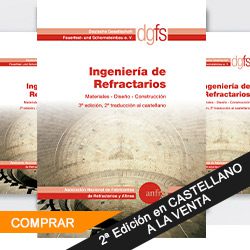The present memo provides an overview of the current issues and line of actions the European Ceramic Industry Association holds vis-à-vis the European Union, within the COVID-19 emergency response scenario.
The objectives highlighted hereinafter consist in the monitoring and safeguarding of ceramic industry interests that are caught between the member states’ need for containing the health crisis, the urgency of cushioning the overall socio-economic impacts of the restrictions on European economies and the necessary steps that must be taken for a successful recovery in a post-crisis timeframe.
In particular, this memo highlights 5 macro-issues: 1) efficient reopening of economic activities, restoring the free movement of persons and the functioning of the Internal Market, 2) sustainable industry recovery strategy, 3) implementation of the ETS Phase IV and revision of the EU Climate Law target for 2030 under the ETS legal framework, 4) enforced protection for European companies through the adjustment of the European rules on trade and 5) the social dimension of the crisis.
Ceramic Industry priorities at EU level for a sustainable economic recovery in the context of the Covid-19 outbreak:
1. Resumption of economic activities: CU highlights the need to give priority to the re-opening of economic activities related to strategic sectors and to essential parts of the European value chain (e.g. high-labour-intensive value chain) as soon as the health-crisis is under control;
• Workers’ health and safety and Personal Protective Equipment on-site: ensuring that European businesses will be fully able to provide their workers at all times and on all production sites and installations with the necessary personal protective equipment in accordance with harmonised health and safety guidelines and protocols in order to ensure a quick and permanent restart of production activities.
• Ensuring access to liquidity and to EU funding programmes: prioritising SME’s safety against liquidity shortage by ensuring access to financial liquidity and credit lines as made available within the EU COVID-19 Recovery Package and ensuring the concrete flow of financial supports from local banks and financial intermediaries to European companies.
• Free movement of persons and integral functioning of the Internal Market: restoring the free movement of persons (there is no European Union anymore if EU citizens need to respect a quarantine every time they cross EU internal borders) and guaranteeing the free circulation and border-crossing of workers, goods and materials within the EU territory, including for air transport, along with the need to ensure an effective and gradual elimination of remaining border-control practices, safeguarding a level playing field and reducing fragmentation within the Single Market.
• Re-opening of key industrial sectors: providing strong support and stimulus programmes for the re-launch of all sectors essential to the society and to the economy including the construction sector and the steel value chain in which refractory ceramics play a key role.
Ceramic products play an essential role in a wide range of value chains. Indeed, beyond the construction sector and all high temperature manufacturing processes, advanced technical ceramics are widespread in automotive, energy & environment, electronic applications, mechanical engineering and on all kinds of medical devices and equipment.
2. A new “Deal” for a Sustainable Industry Recovery: supporting the design and implementation of an EU Recovery Strategy which will pair the needs for a strong economic retrieval with the far-reaching objectives of the New Green Deal, and in due consideration of the economic burden on European businesses stemming out the green transition and the economic impact of the COVID-19 outbreak.
• Re-industrialisation of Europe: fostering structural efforts in making European-wide economic and industry sectors less dependent on complex global value chains, by stimulating investment, financially supporting research & innovation in process industries and promoting the effective deployment of circular economy models as key
pathways for European production and economic autonomy.
• EU and national recovery strategies to acknowledge the positive contribution of ceramics to hygiene and indoor air quality: ceramic construction products as well as household ceramic products are completely safe and hygienic and their use will be instrumental in the COVID-19 recovery phase. For example, ceramic tableware with a normal wash cycle (as regulated by the specific norms) sanitises the material and thereafter the product (be it a coffee cup or a plate, or many other ceramic tableware pieces) can be reused endlessly. Ceramic sanitary appliances are fully hygienic thanks to their durable surface glaze that prevents the absorption of water and the proliferation of humidity and bacteria. The ceramic finish ensures resistance against abrasive cleaning products. Ceramic construction products (clay bricks, blocks, roof tiles, wall & floor tiles, clay pipes and pavers) provide safe and healthy homes: no toxic emissions (e.g. Volatile Organic Compounds) emanate into the indoor environment. Ceramic construction
products also provide high levels of safety in case of fire and flood, thereby contributing in the long term to a resilient society.
• Renovation wave: enforcing the promotion of green public and private investments for the renovation of Europe’s building stock by leveraging on the investments mobilised and announced by the European Commission as part of the COVID-19 Economic Recovery Package. This should boost job creation in the sector and address the need in Europe for well performing buildings.
• Social Housing initiative: stimulating affordable and healthy housing, which will be specifically necessary after the COVID-19 crisis.
• Postponement of inessential initiatives and adaptation of deadlines: urging the European Commission to temporarily postpone all inessential initiatives and reviewing the 2020 Commission Work Programme accordingly, in due consideration of the reduced operational capacity most European businesses and in the light of the new political priorities.
• Adaptation of regulatory deadlines: The Commission should also extend certain deadlines, notably to implement certain EU legislations (REACH, CMD, CLP…). This flexibility will be important to give companies first the opportunity and time to survive and then recover from the crisis. The same applies to carbon emissions compliance deadlines under EU ETS Directive, more particularly regarding derogations on simplified verification for installations under art. 31 Regulation 2018/2067 and on extensions for the surrendering of allowances to cover emissions due to the circumstances linked to COVID-19 fallouts (Phase III).
3. Implementation of the ETS Phase IV and impact assessment of EU Climate Law targets for 2030: safeguarding the original amount of post-2020 free allocations (Phase IV) possibly affected by the outbreak. To avoid further negative impact on industry in the coming years the allocation method for 2021 and 2022 must be readapted in a way that the year 2020, when the activity is abnormally low, is not used as a basis for the allocation production level changes. Either 2019 alone or an average 2018-2019 should be taken into account. Moreover, the Commission should give due consideration to the expected economic impact of this crisis while performing its impact assessment on the potential increase of the 2030 carbon reduction target for ETS sectors from 40% to 55%.
4. Strengthening EU trade rules: facilitating trade and removal of market access barriers while ensuring the protection of fragile European SME’s currently in critical condition and subject to unfair trade practices (e.g. illegal dumping and subsidies in a context of inherent overcapacities several times the size of the EU market), through reinforcement of essential EU legislations such as trade defence instruments and safeguards and through targeted rescuing measures.
5. The manufacturing sector is essential to tackle the social dimension of the crisis: it is necessary to strengthen employment policies to support industries and workers, in particular to protect the manufacturing sector and private incomes from the long-term consequences of job losses, declines in working hours, in earnings and in spending capacity for 52 million European people and families, which are benefiting directly and indirectly from employment in the industrial sector. For ceramics alone, this applies to around 600.000 direct and indirect employees.



